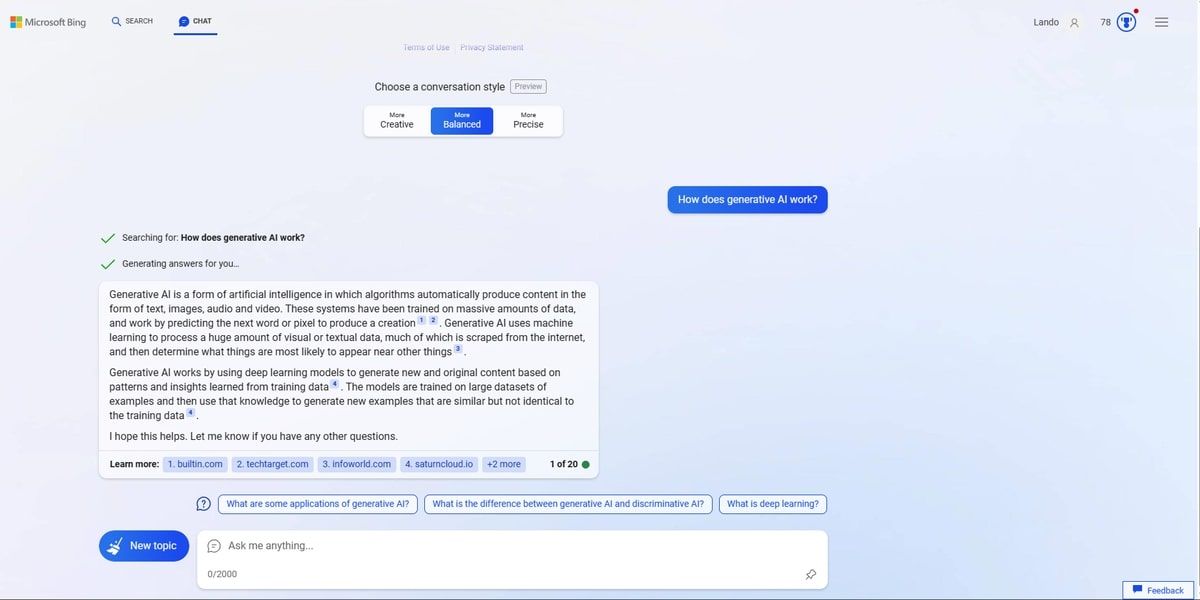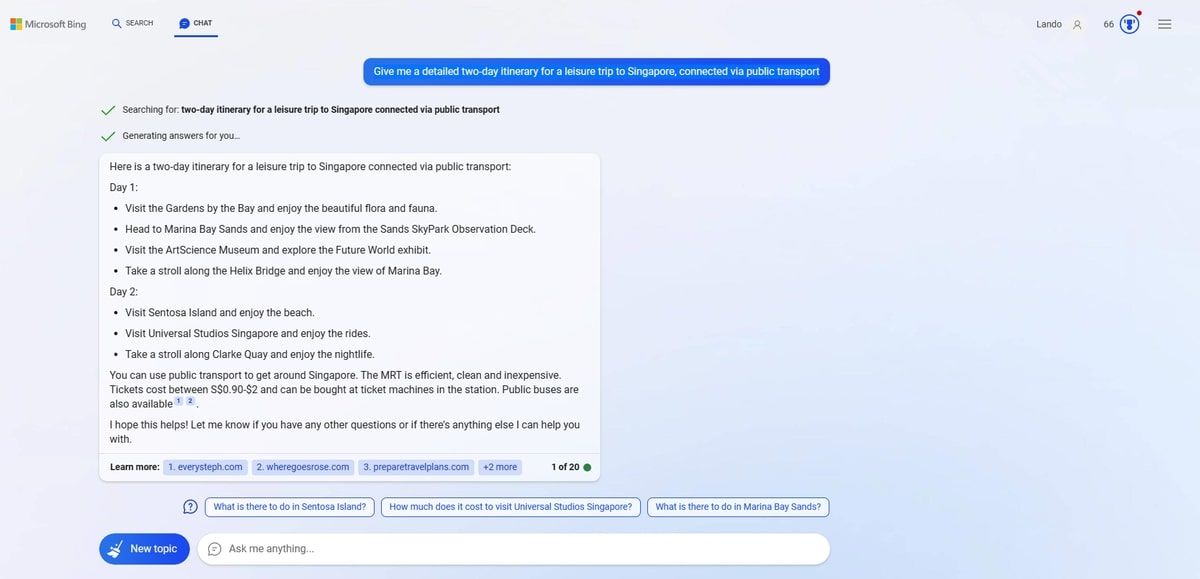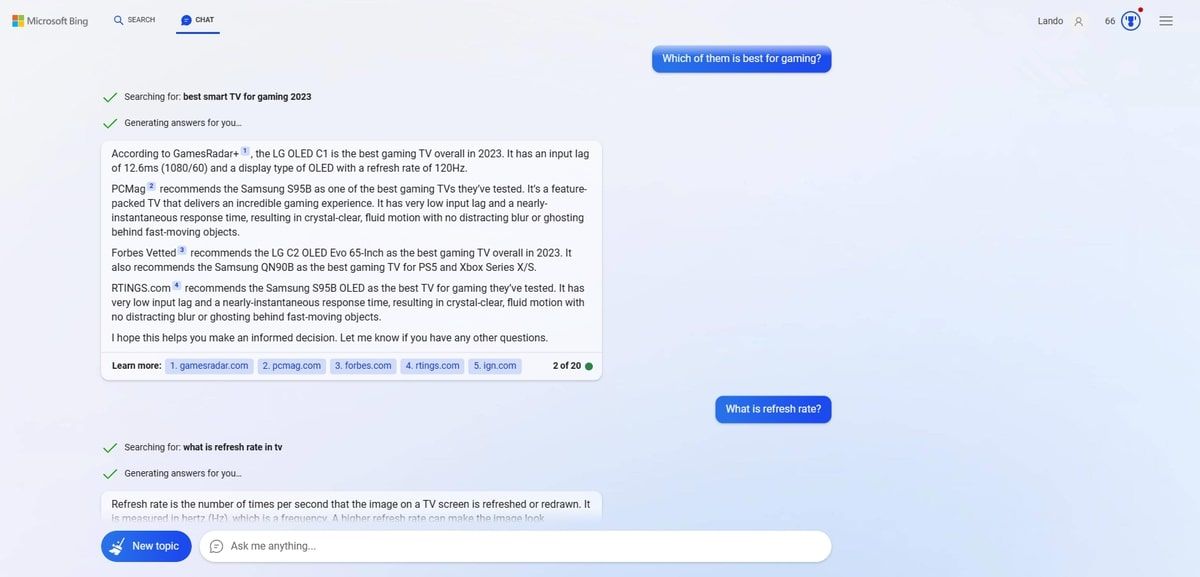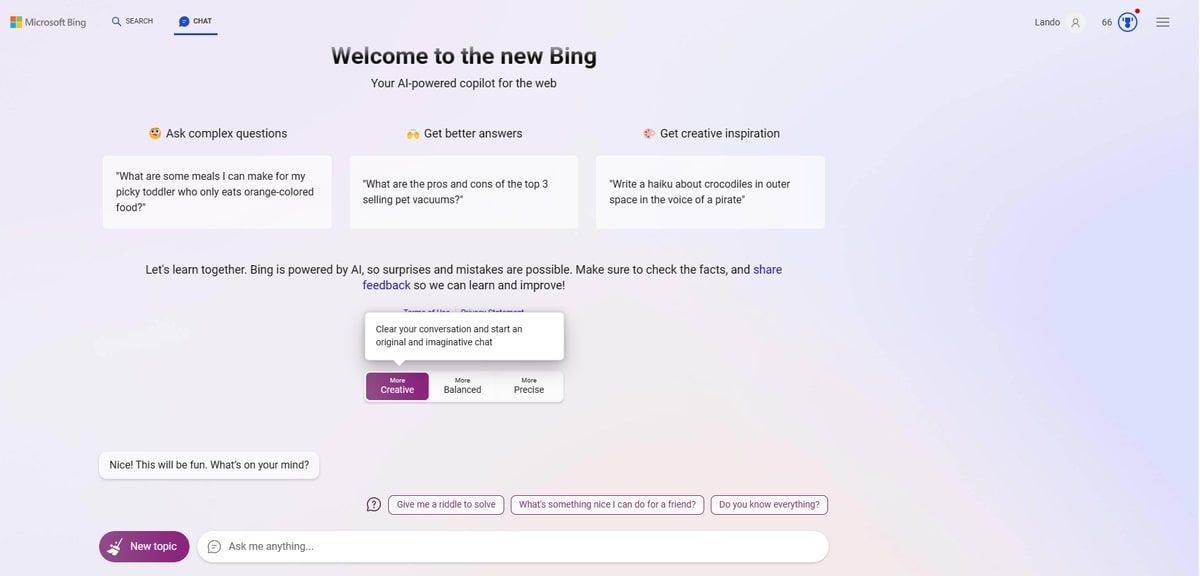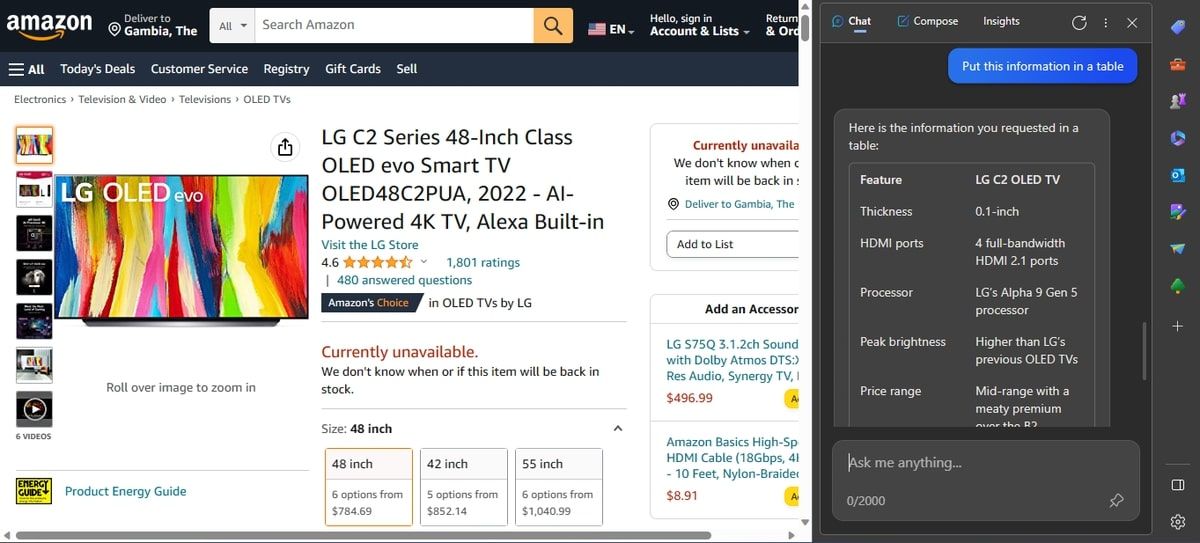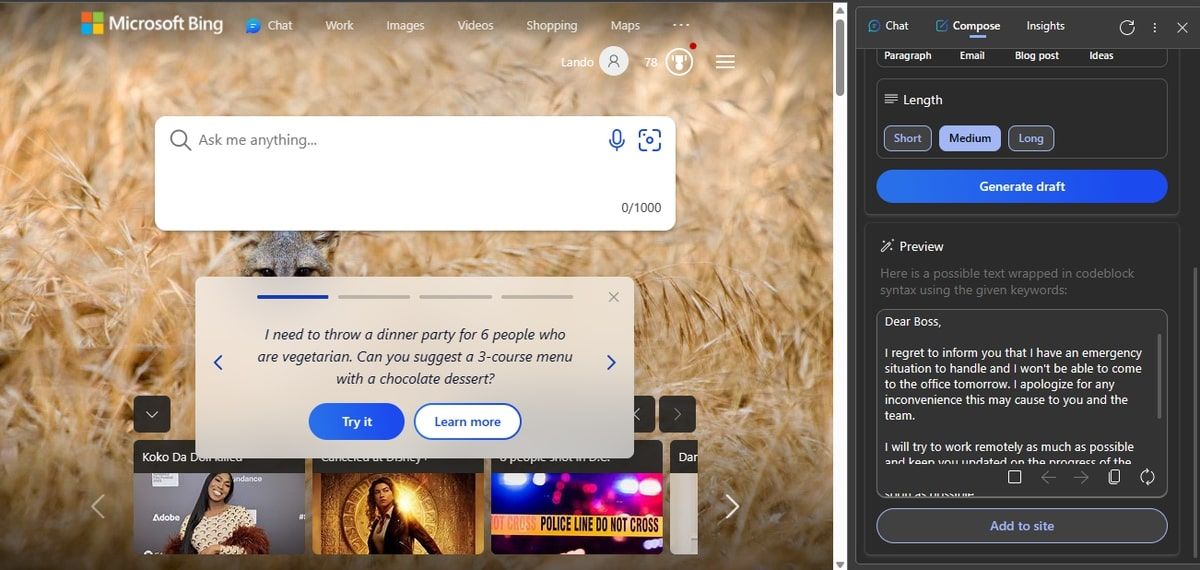Search engines have been one of the most popular and practical tools for finding information. And although major players like Google and Bing have been tweaking their algorithms in the past two decades to improve their search results, nothing has been as revolutionary as the integration of ChatGPT-like AI chatbots into the search engine space.
While it's still early days, generative AI search has the potential to significantly change how we find and consume information online. Here, we'll cover some ways AI-driven search is better than traditional search.
Traditional Search vs. AI-Powered Search: How Search Engines Work
Traditional search engines rely on complex algorithms to crawl and index websites and retrieve relevant results based on specific criteria (keywords, backlinks, the site's authority, etc.). When you enter a query into a search engine like Google, it will compare the keywords to its indexed pages and presents a list of results in order of relevance.
Although this typically helps you find what you're looking for, it doesn't always provide the most relevant results. For instance, traditional search engines often rely on specific keywords to retrieve results, so the quality of results can vary depending on the phrasing of your query. Moreover, some online publishers are notorious for keyword-stuffing their content to rank higher in search engine results pages, which can lead to irrelevant results.
Generative search engines aim to enhance users' experience by overcoming some of these limitations and helping you get more from your searches. So, how does generative AI search work?
AI-driven search uses natural language processing to interpret user queries and produce relevant and human-like responses. This brings a conversational aspect to the search experience, allowing you to ask follow-up questions and have a more personalized experience.
Considering its tremendous potential, it's no wonder Big Tech companies are investing heavily in AI-powered search. For now, Microsoft's Bing AI seems to be leading the pack and offers a glimpse into some of the advantages AI-powered search can provide.
1. Better Search Intent Recognition and More Personalized Results
The whole point of search is finding relevant information quickly, which is challenging to achieve without understanding the user's search intent. Google constantly improves its algorithms to better recognize a users' search intent and match them with the most relevant results. However, sometimes these results broadly answer the query or provide irrelevant information.
On the other hand, Microsoft's Bing AI-powered search engine leverages OpenAI's GPT-4 model to understand the purpose of your online and provide more personalized results or precise information. This helps you save time, as you won't have to explore different websites to find the necessary information.
For example, let's say you're traveling to Singapore for a two-day leisure trip, and you'd like to have a list of public-transport-friendly places to visit. With Google search, you'll have to sift through multiple websites and reviews before deciding which activities would make the cut.
On the other hand, Bing AI gives you a more personalized result that includes a list of places you can visit each day and ticket prices for public transport.
2. Access More Conversational Search
AI search engines will undoubtedly change websites by providing more relevant and human-like conversational responses that feel like you are talking to a real person. This allows you to refine your queries and ask follow-up questions to get more specific results.
For instance, let's say you want to buy the best smart TV in 2023. Instead of visiting multiple websites to get information about the top models, you can simply ask, "What are the best smart TV in 2023?" and then refine your query with follow-up questions like, "Which of them is best for gaming," or "what is OLED." Moreover, the responses come with links you can click for more information or to purchase the items.
In addition, you can also choose the conversation style to suit your preferences. You can select More Creative for a more imaginative chat, More Balanced for a more informative conversation, or More Precise for a more straightforward interaction.
Lastly, there may be times when you need to ask several questions related to the same topic or subject. Instead of asking them individually, as you would do with a traditional search engine, you can input all your queries simultaneously and have the AI-powered search engine provide all the answers in a single response.
For instance, you can type "Where was Elon Musk born? What is his age? Which companies does he own? When did he purchase Twitter?" in the chatbox, and Bing AI will scrape the information from multiple sources and consolidate them into a single response.
3. More Convenient Browsing Experience
In addition to its conversational search approach, Bing AI makes browsing the web more convenient and enjoyable. One of the main reasons to use Bing AI in the Microsoft Edge browser is that it helps you overcome browser tab clutter. For the most part, you won't need to open several tabs to search for information; instead, you can get all you need by leveraging the Microsoft Edge Sidebar.
Let's get back to our smart TV example. Let's say you clicked on an Amazon link for the LG C2 OLED TV and would like to know more about it. Instead of opening another tab, click on Bing's Discover tab in the Microsoft Edge sidebar and select Insights. This gives you information about the product, such as related videos, reviews, and links to other online stores with the same item.
Perhaps you want to compare it with other TVs on the same page? Select the Chat tab in the sidebar and input your query. You can even ask Bing AI to organize the information in a table, making your browsing experience more organized and convenient.
4. Harness a Writing Assistant in Your Browser
Chances are, you have been wowed by the incredible ways ChatGPT can enhance your workday. One of its defining features is its ability to interpret your queries and mimic human-like conversations. This makes it an effective personal assistant, capable of handling a wide range of tasks, most notably writing—and Bing AI is now powered by this technology.
You can prompt Bing AI to write poems, articles, and essays or give you title ideas for your blog posts. Bing's chatbot can write your emails in a professional, casual, funny, informational, or enthusiastic tone. By tapping into ChatGPT's capabilities, Bing AI can also summarize articles or extract key points from web pages, so you don't have to read the whole text.
Will Generative AI Search Become the New Normal?
Generative AI search certainly has the potential to revolutionize how we search and browse on the internet. As we have covered above, Bing AI already provides several features that make it a convenient and personalized way to search the web.
However, it is also worth mentioning that it has its drawbacks and limitations, and it remains to be seen if generative AI search will end up replacing traditional search engines. For now, they are doing a good job complementing each other, so it will be interesting to see what the future holds.


